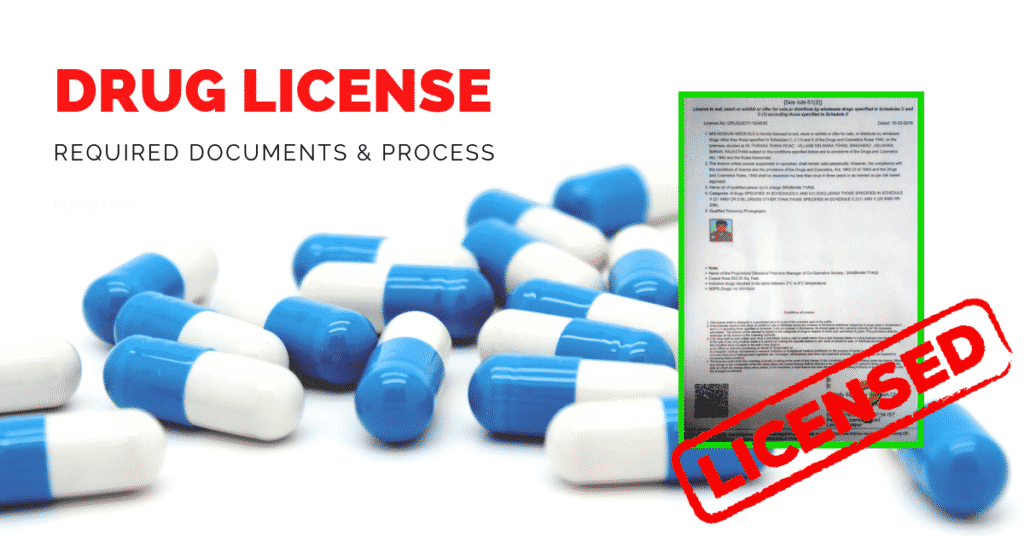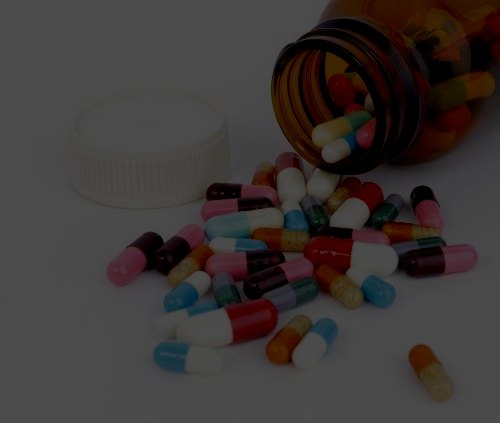OVERVIEW
The primary concern of the government is that everyone has equal and fair access to drugs and medicines. The right to manufacture and sell drugs is regulated by the government and given cautiously. There are stringent rules for granting drug licences for the manufacturing and selling of drugs and medicines. The Drugs and Cosmetics Act, 1940 governs the end-to-end process from manufacturing to the sale of drugs in India. The drug regulatory authority grants approval for the laboratories to carry out tests and analyses on behalf of the manufacturers. They issue Free sale certificates and Good Manufacturing Certificates and Export registration documents, etc., for export registration if required.

MEANING OF DRUGS
Section 3 (b) of the Drugs and Cosmetics Act, 1940 defines “drug” to include all medicines and devices for the use of human beings or animals internally or externally, and all substances planned to be used for or in the diagnosis, mitigation, treatment, or prevention of any disorder or disease in animals or human beings, including preparations applied on the human body for the purpose of repelling insects like mosquitoes; it also includes all substances that can be used for the destruction of insects and all components of a drug – like empty gelatin capsules.
TYPES OF DRUG LICENSE
Types of drug license for pharmaceutical business in India are:
I. RETAIL SALE DRUG LICENCE- the term ‘Retail Sale’ means a sale for consumption of the end consumer. Retail Sale of drugs is possible after acquiring a retail sale drug license by the seller. Retailers of drugs could sell them to hospitals, dispensaries, research institutions, or any individual.
II. WHOLESALE DRUG LICENCE- The term ‘Whole Sale’ means the sale of goods for further sale to reach the end consumer. The wholesaler must possess a wholesale drug license. Wholesale may opt for Third party manufacturing. Third-party manufacturing means the drugs manufactured by a licensed manufacturer per its client's requirement, i.e. Wholesaler. Such a manufacturer will require a brand affidavit before manufacturing any medicine under the brand name of Wholesaler. The product package will bear the manufacturer( Marketed by) and the Wholesaler (Marketed by-). If a client places a requirement for which needs the approval of the Drug controlling authority, the manufacturer is to take such approval before manufacturing those drugs.
III. MANUFACTURING DRUG LICENCE- Manufacturing in drugs means any process or part of a process for making, altering, ornamenting, finishing, packaging, labeling, breaking up, or otherwise treating or adopting any drug with a view to its sale or distribution. this license is required for manufacturing drugs.
IIV. LOAN LICENCE - License issued to a business that does not own the manufacturing unit but uses the manufacturing facilities of another licensee. The manufacturer who provides its facility for the production of the drug must have a valid drug license and surplus production capacity.
V. IMPORT LICENCE- The Central Drug Standard Control Organisation (CDSCO) grants import licences for drugs. This license is required for the import of drugs in India.
PREREQUISITES FOR OBTAINING A LICENSE
1. Pharmacist/Competent Individuals- In the case of retail business, the pharmacist must hold a degree of B Pharma/D Pharma and must be registered with State Pharmacy Council. In the case of wholesale business, B Pharma/D Pharma Degree holder Registered with State Pharmacy Council or A graduate with one year of experience of dealing in drugs or An undergraduate having four years experience of dealing in drugs.
2. Space Requirement- The area of Pharmacy or unit is an important requirement. The area of the pharmacy/unit should be 15 sq. meters in case of wholesale license. In the case of retail and medical shops, it should be 10 sq. meters. The National Building Code of India, 2005 specifies the clear height of the premises of the sale.
3. Storage Facility- the other important requirement is storage facilities for medicines. As medicines require proper storage in low temperatures, refrigerators, and air conditioners, etc.
APPLICATION FOR DRUG LICENSE
THE STEPS FOR OBTAINING A DRUG LICENSE ARE:
1. Online application for license depends on the line of business, which requires a valid E-mail ID and contact number.
2. Update the documents and form with applicable fees.
3. After completion of the online application process, an inspector will inspect the site and verify the validity of documents.
4. After completion of the above procedure, the authority will issue the drug license.
LIST OF ESSENTIAL DOCUMENTS FOR OBTAINING A SALE LICENSE ARE:
1. Constitution of the entity, Memorandum of Association (MOA), Articles of Association (AOA) in case of a company; Partnership deed and LLP agreement in case of Partnership and LLP.
2. ID proof of partner/director/proprietor.
3. Documents related to premises- Copy of ownership documents of property or rental agreement as the case may be.
4. Site and Key plan of the premises.
5. Copy of Board resolution permitting obtaining of a license.
6. Proof of availability of storage space as cold storage, refrigerator, etc.
7. Copy of challan
8. Affidavit regarding non-conviction of proprietor/partner/director and the firm.
9. The affidavit from the registered pharmacist/competent person.
FOR PHARMACISTS AT A RETAIL SALE:
1. Proof of qualification
2. Registration of local pharmacy council
3. Appointment letter
FOR A PHARMACIST AT A WHOLESALE SALE:
1. Proof of qualification
2. Experience certificate
3. Appointment letter

